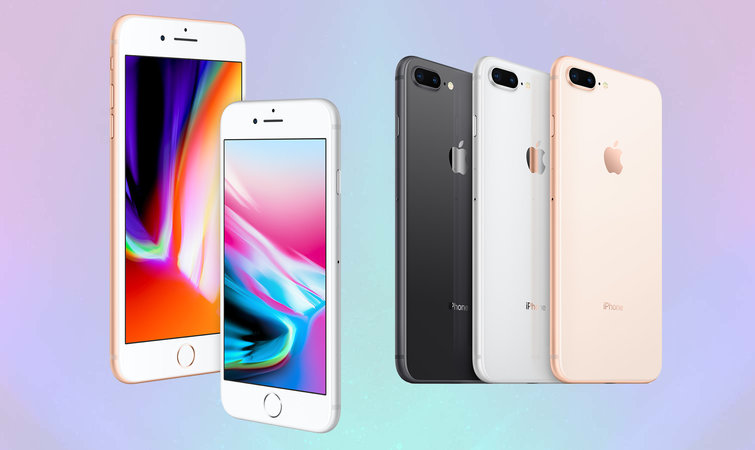iPhone 8 a Flop? Demand Seen Falling
Apple's iPhone 8 might be facing headwinds from the company's own iPhone 7 and pent-up demand for the iPhone X.
Here at Tom’s Guide our expert editors are committed to bringing you the best news, reviews and guides to help you stay informed and ahead of the curve!
You are now subscribed
Your newsletter sign-up was successful
Want to add more newsletters?

Daily (Mon-Sun)
Tom's Guide Daily
Sign up to get the latest updates on all of your favorite content! From cutting-edge tech news and the hottest streaming buzz to unbeatable deals on the best products and in-depth reviews, we’ve got you covered.

Weekly on Thursday
Tom's AI Guide
Be AI savvy with your weekly newsletter summing up all the biggest AI news you need to know. Plus, analysis from our AI editor and tips on how to use the latest AI tools!

Weekly on Friday
Tom's iGuide
Unlock the vast world of Apple news straight to your inbox. With coverage on everything from exciting product launches to essential software updates, this is your go-to source for the latest updates on all the best Apple content.

Weekly on Monday
Tom's Streaming Guide
Our weekly newsletter is expertly crafted to immerse you in the world of streaming. Stay updated on the latest releases and our top recommendations across your favorite streaming platforms.
Join the club
Get full access to premium articles, exclusive features and a growing list of member rewards.
Apple's iPhone 8 might have only hit store shelves a few weeks ago, but already there's some concern the smartphone could be facing some problems.

A study from analysts at KeyBanc Capital Markets says Apple's iPhone 7 models are actually outselling the iPhone 8. In a note to investors KeyBanc's John Vinh said that "a meaningful portion of customers are buying iPhone 7 in lieu of the iPhone 8." He attributed the buying decisions to the iPhone 8's "lack of significant enhancements."
Vinh's comments were followed by a Reuters report on Thursday (Oct. 19) that cited an Economic Times report, claiming Apple has cut its iPhone 8 order plans by as much as 50 percent.
Apple's iPhone 8 might also see its sales stymied by its iPhone X, a smartphone that will be launching next month and has prompted some customers to hold off on buying a new iPhone until it's available, the analyst said.
"I can’t say definitively whether demand is soft but I would not be surprised if it were," said Lynnette Luna, principal analyst for GlobalData. "Apple left the iPhone 8 design largely unchanged, which doesn’t spur huge upgrades in my mind. But the iPhone X is a leap, and those who want the latest new iPhone design are likely opting for that one."
Apple announced the iPhone 8 and iPhone X at a press event last month. While the company did its best to pitch the iPhone 8 as a desirable option, featuring an enhanced glass design, superfast A11 Bionic processor, and new wireless charging, customers seem to be more interested in the iPhone X. Apple's iPhone X offers a boatload of enhancements, including an all-new design, the first OLED display from Apple, and a new facial-scanning feature called Face ID.
MORE: 5 Reasons I'm Skipping the iPhone 8 for the iPhone X
Get instant access to breaking news, the hottest reviews, great deals and helpful tips.
Analysts who picked up on the Economic Times story and spoke to Reuters about Apple's decision said the company is indeed seeing that demand might be heavier for the iPhone X than the iPhone 8 and has decided to shift its order focus to its new device.
According to Rosenblatt Securities analyst Jun Zhang, Apple had initially planned a production mix of 50/50 between the iPhone 8 line and iPhone X. Now, through, Zhang believes Apple is allocating up to 70 percent of its production plans to the iPhone X.
Historically, iPhones have sold out rather quickly when offered for pre-order. Last month when the iPhone 8 was offered, however, many units were still available. There were also units readily available on its launch day. It was the first time Apple hasn't been hit with widespread sellouts of new handsets.
But perhaps it's not all Apple's fault. Vinh, whose comments were earlier reported on by Reuters, said that carriers have also been less willing to offer promotions on the iPhone 8 than they were on the iPhone 7. Customer concerns, coupled with pricing considerations, might be pushing people to the iPhone 7, which is still a fine option in today's market, and it's more affordable.
The big test for iPhone 8, however, might just be when iPhone X hits store shelves on Nov. 3. At that point, it'll need to compete with both the iPhone 7 and iPhone X.
That appears to have scared off investors, who on Thursday pushed Apple's shares down 1.5 percent following reports of poor demand for the iPhone 8. However, Deutsche Bank analysts said that Apple's total production volume hasn't really gone down. Instead, the company has shifted its focus to the iPhone X, which might also deliver a higher profit for the company.
So, while demand for iPhone 8 might be slipping, Apple's profits might grow.
Don Reisinger is CEO and founder of D2 Tech Agency. A communications strategist, consultant, and copywriter, Don has also written for many leading technology and business publications including CNET, Fortune Magazine, The New York Times, Forbes, Computerworld, Digital Trends, TechCrunch and Slashgear. He has also written for Tom's Guide for many years, contributing hundreds of articles on everything from phones to games to streaming and smart home.
-
rosejenifferjohnson You saw "leaks" as in the same leaks that change every single day. iPhone 8 leaks have been happening for a while now, each time they flip-flop between different things, don't believe what you read until it's confirmed by Apple.Reply
As for putting Samsung and other companies out of business, I highly doubt that. The iPhone 8 could be the best phone on the market but people will still buy other phones, not everybody can afford expensive phones, nor does everybody like the same things. Putting specs aside, you still have personal preference of operating system -
antiwheelgap Why are we still pretending like we thought people were going to love the iPhone 8? Seriously, any Apple fan will choose the X... no brainerReply -
bhamdans Should have put a waterproof headphone jack back on the device. That would make it MUCH better than 7. Or put on USB-C port instead of lightning.Reply -
lmalone376 Other phones are cheaper. I cannot afford to by an $800-$1000 phone. I had a samsung s3 and just got a samsung J3 for $75. I don't need all these fancy apps that Iphone comes with. I keep wondering how Apple stays in business with all the high dollar phones and Ipads.Reply
 Club Benefits
Club Benefits










